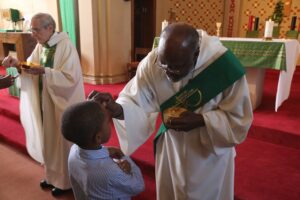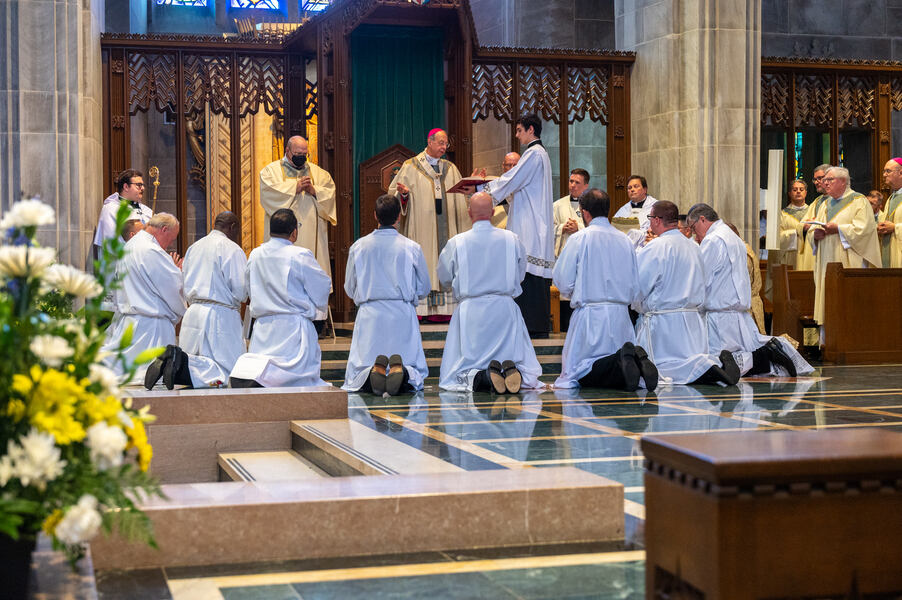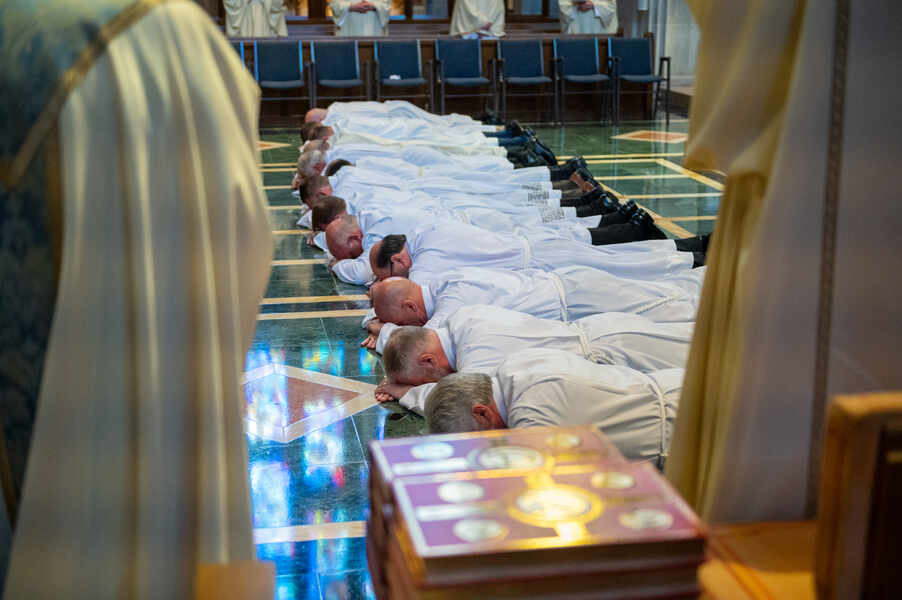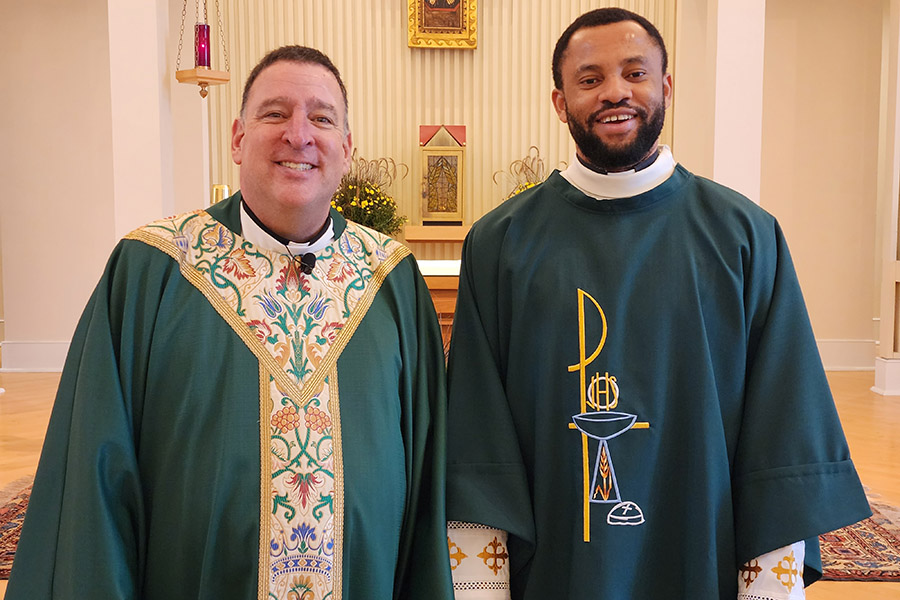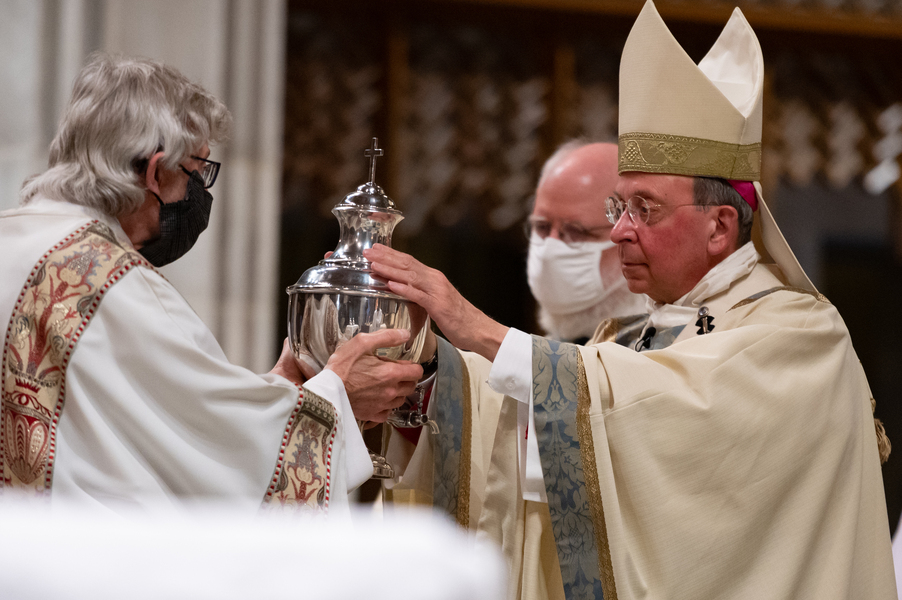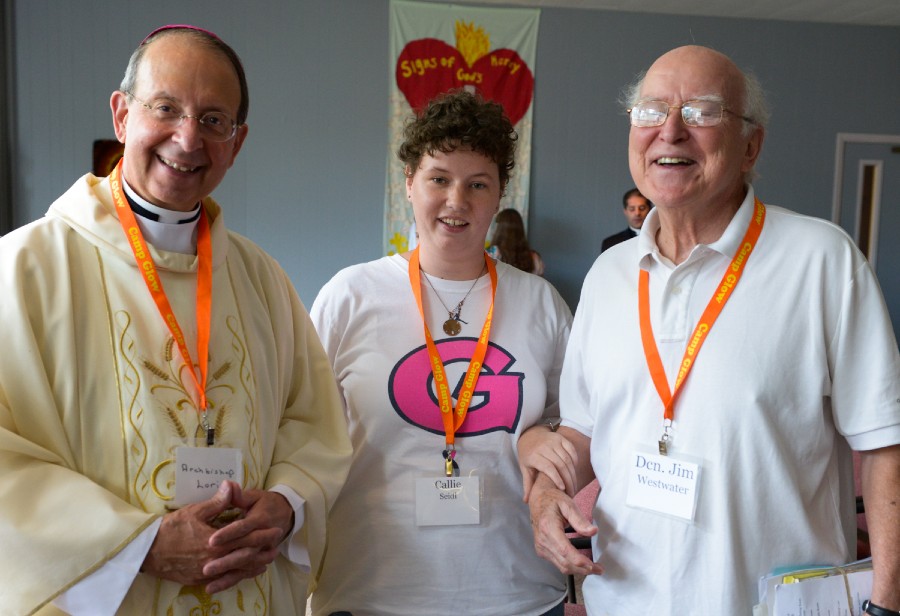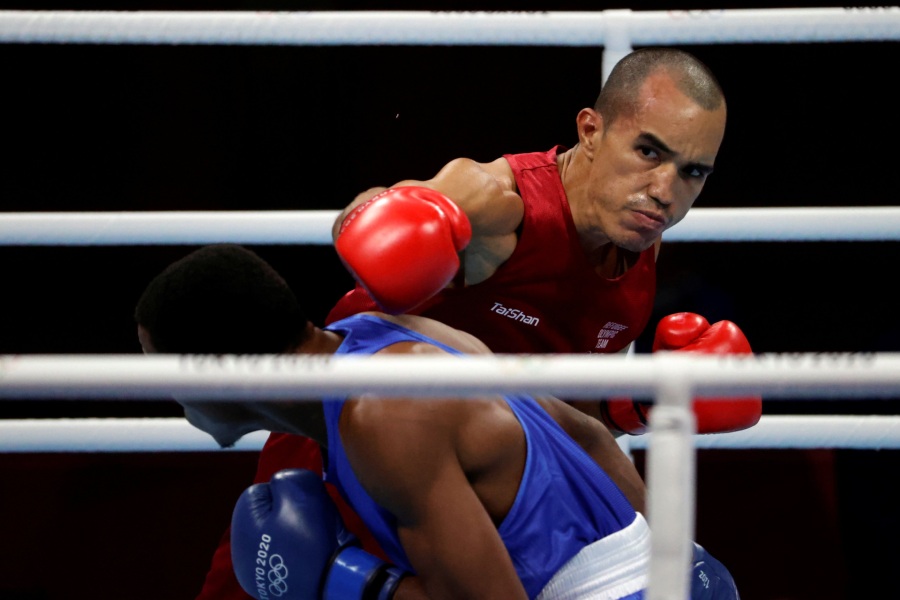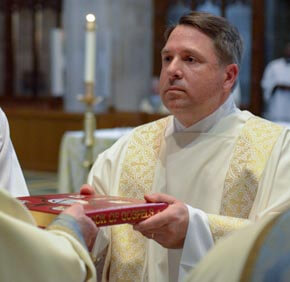
The Archdiocese of Baltimore is looking for a few good men.
Starting Nov. 18, the archdiocese will host a series of information sessions for those considering becoming permanent deacons.
There are common misconceptions that deacons are just mini-priests or mega-laymen, but Father Michael Triplett, director of deacon formation for the Archdiocese of Baltimore, said deacons serve a much larger, vital role for the church.
“They have a foot in both worlds,” Father Triplett said. “They are a cleric. They have a very particular calling and grace built up. But they also have families and they often have secular jobs. And so, they’re very aware of what’s going on in the world and the challenges that families face.”
Indeed, in promoting the information sessions, organizers cited Archbishop William E. Lori’s pastoral letter “A Light Brightly Visible,” which encourages greater community engagement by everyday Catholics.
But because deacons are so integrated into their communities, and they can’t move from parish to parish as priests do, recruiting future deacons presents a unique challenge.
“The hope is to continue to not only recruit deacons and call for deacons but to help diversify the diaconate,” Triplett said. “We want to develop strong deacons who are Spanish speakers, from our African-American communities, and from the urban and rural communities.”
Father Triplett said stability is the most important attribute for those discerning the vocation.
Many of the requirements for the diaconate reinforce this. Candidates must be at least 35 years old. Married candidates must be married for at least six years; the candidate’s wife must approve of his vocation. Candidates agree to become celibate if their wife precedes them in death.
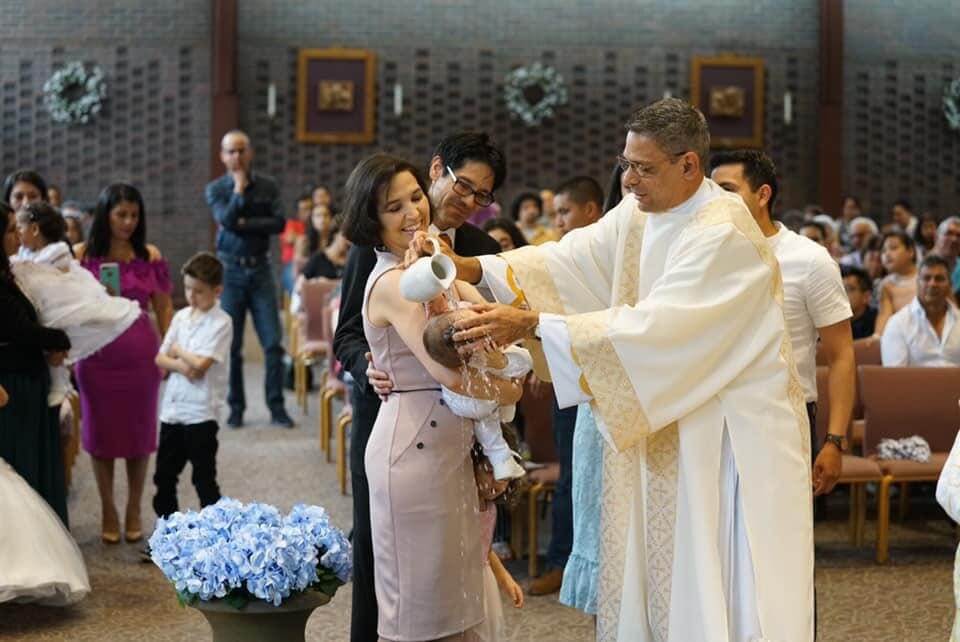
Single men are also eligible for the diaconate, but they cannot marry once they are ordained.
Candidates’ finances and primary careers should be in order, Father Triplett said. Deacons in the Archdiocese of Baltimore do not receive financial compensation for their ministry.
Practicing Catholics for at least the last six years, candidates must have received the sacraments of baptism and confirmation.
Becoming a deacon is typically a four-year process. It includes: assignments in parishes and institutions, such as prisons, hospitals and nursing homes; theological coursework predominately taught by the faculty of St. Mary’s Seminary and University in Roland Park; and the aspirancy period, a year-long discernment and reflection period.
During the aspirancy year, candidates attend 12 full-day sessions at St. Mary’s Seminary and University. This period encourages candidates to reflect on whether the demanding work of the diaconate is a good fit for them and their families.
Deacons serve the church in a variety of ways. They participate in the liturgy by proclaiming the Gospel and delivering homilies. They are able to baptize Catholics, witness marriages and conduct funeral services. Deacons also are often heavily involved in providing pastoral care to the faithful.
The diaconate was revived after the reforms of the Second Vatican Council in the 1960s. The motivation behind this revival may surprise some Catholics. It was not to address some staffing shortage but to foster a greater connection between the church and the community.
The biggest proponents of reviving the diaconate were German priests who survived imprisonment in the Nazi concentration camp at Dachau.
“A lot of the priests felt like it crept up on them – the gruesomeness of the Nazi occupation and the destruction of the Jews,” said Father Triplett, who wrote his thesis on the origins of the modern diaconate. “If they had been more aware of that, they thought they could have been stronger earlier and prevented the disaster.”
Father Tripplett said deacons allow the church to be more true to what is happening in the wider world.
“The diaconate is one piece to open the door. We can’t cower inside the church to defend ourselves … we have to go out to the world.”
Information sessions will be held:
– Nov. 18, 7 p.m., on Zoom
– Dec. 5, 7 p.m., on Zoom
– Jan. 7, 7 p.m., at Our Lady of Perpetual Help in Ellicott City
– Jan. 10,3 p.m. at St. Ignatius in Ijamsville
– Jan. 27,6 p.m. at St. Bernardine in Baltimore
– Feb. 10,7 p.m. on Zoom
Contact Kristine Arata at Kristine.Arata@archbalt.org to register for one of the sessions.
Email Tim Swift at tswift@CatholicReview.org
More on the diaconate
Copyright © 2020 Catholic Review Media
